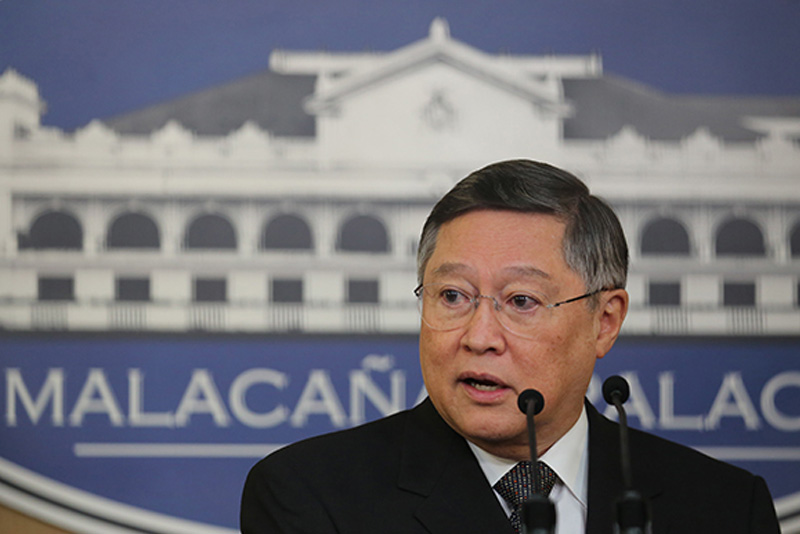MANILA, Philippines - The Duterte administration is not “shutting the door” or implementing a total ban on any assistance from the European Union as long as they are in line with the government’s priorities and do not come with conditionalities, the Department of Finance (DOF) said.
“We’re saying, this one we don’t agree and we will not accept this one. We will not accept this particular set of conditions, we will not accept this money because we don’t think we need it for that purpose,” Finance Secretary Carlos Dominguez III said in an interview Friday night.
As example, Dominguez said an offer from the EU that included an 80-million euro project was rejected because it provided “adherence to rule of law” as condition.
“Our priority is reducing poverty through infrastructure and achieving peace. But if (the project is) not our priority then why should we accept it?” Dominguez said.
“There is also the issue of conditionalities. One of the conditions there is, ‘we can cancel this, if we think that you’re doing this, we can cancel this at anytime.’ It’s not right,” he added.
Dominguez said ongoing grants are not affected by the recent rejection of that particular offer.
Earlier, presidential spokesperson Ernesto Abella said the rejection of new aid would be on a “case-to-case” basis. He said the Philippines would not accept further aid if they come with conditions that allow interference in Philippine affairs.
But European External Action Service managing director Gunnar Wiegand said the provision of rule of law and guarantee of human rights for grants are standard and “nothing special for the Philippines.”
“I would like to clarify the conditionality which is standard provision of all our financing agreements with partners, whether it is in this region or in other regions of the world,” Wiegand said.
Development projects currently using EU assistance include a 35-million euro ($39 million) grant to support the peace process with Muslim rebels in Mindanao.
The EU is the largest foreign investor in the Philippines – the only member of the 10-member Association of Southeast Asian Nations to enjoy duty-free exports under EU’s Generalized Scheme of Preferences or GSP incentives for developing countries.
The Philippine’s duty-free exports to EU were worth around 1.6 billion euros in 2016, according to EU delegation data.


